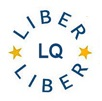OCLC Registry of Digital Masters – Opportunities for European Cooperation
DOI:
https://doi.org/10.18352/lq.7821Abstract
I would like to thank the Preservation Division for the invitation to participate in the programme today. I would also like to thank the LIBER Board for their interest in the early stages of this project culminating in the announcement LIBER President Erland Kolding Nielsen made last night about LIBER support and collaboration with OCLC PICA with respect to the Digital Registry. This initiative reflects my new role within OCLC PICA, which is to identify opportunities for joint development with our major shareholder OCLC, and sometimes 3rd parties such as LIBER. My main purpose today is to provide a descriptive paper to inform LIBER members about the OCLC Digital Registry and to outline the possible role for LIBER and its membership in a model for European participation. My presentation will be in three phases: the need for a registry, a description of the Registry and finally, and perhaps most importantly, to outline opportunities for LIBER and its members in establishing a model for European contribution. We are all familiar with the concept of a registry through our participation in union catalogues and perhaps also from our experience with microfilms through the European Register of Microform Masters (EROMM) hosted by our friends in Göttingen.Downloads
Download data is not yet available.

Published
2005-11-08
Issue
Section
Articles
License
Copyright (c) 2005 Janet Lees

This work is licensed under a Creative Commons Attribution 4.0 International License.
How to Cite
Lees, J. (2005). OCLC Registry of Digital Masters – Opportunities for European Cooperation. LIBER Quarterly: The Journal of the Association of European Research Libraries, 15(3-4). https://doi.org/10.18352/lq.7821





